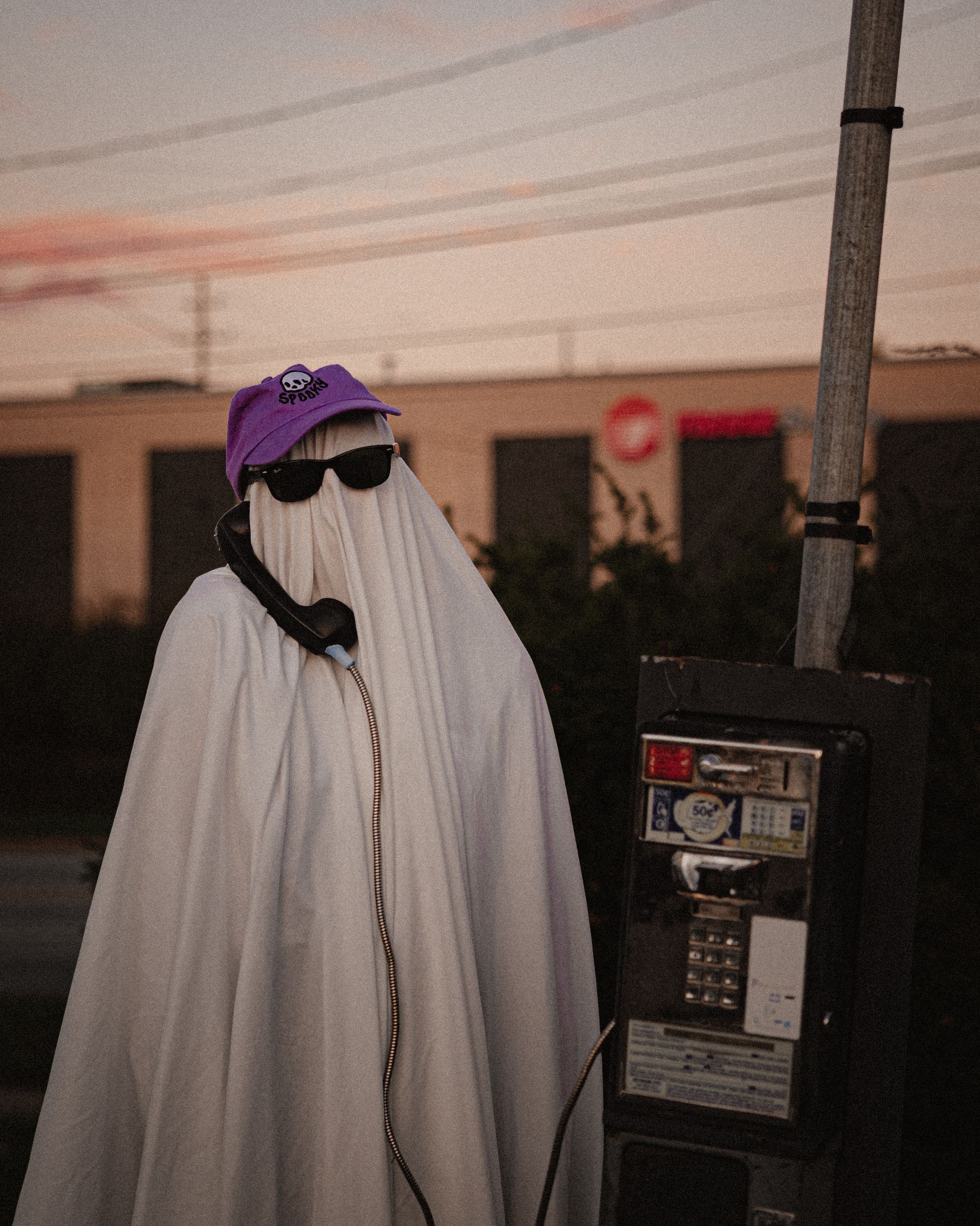Welcome to modern dating, where 'ghosting' is not about spooky spirits, but about vanishing dates. 👻
Ghosting, for the uninitiated, is the practice of ending a personal relationship by suddenly withdrawing all communication without explanation. It's like participating in a magic trick where you're both the audience and the disappearing act. Now, let's put on our lab coats and dive into the brainy bits.
Neuroscientists have had a field day with ghosting.
Studies show our brains process social rejection in regions linked to physical pain. Yes, being ghosted can literally hurt. It's like your brain's saying, "Remember that stubbed toe? This is worse." This might explain why some people choose to ghost - it's less about being heartless and more about being pain-averse. It's their brain's way of saying, "Let's skip the emotional ouchies."
Why We Ghost: A Brain's Tale

First, let's crack open the skull (not literally!) and peek into the brain. Neuroscience has its fingerprints all over ghosting. When someone disappears from our lives without warning, our brain's pain pathways light up like a haunted house. According to a study published in the 'Journal of Neurophysiology', social rejection activates the same brain areas as physical pain.
Yes, being ghosted doesn't just hurt your feelings; it hurts your brain. It's like your neurons are crying out, "Why, oh why, did you not just text back?"
But here's where the plot thickens: the brain is not just a victim; it's also the culprit. Ghosters often use this vanishing act as a shield. The anterior cingulate cortex, the part of the brain that deals with emotional regulation, goes into overdrive. It's like the brain's version of a smoke bomb - poof, and they're gone! For ghosters, avoiding the discomfort of confrontation is less about being cold-hearted and more about self-preservation. It's their brain's way of saying, "Let's skip the emotional rollercoaster and stick to the merry-go-round."
Moving from neurons to psyche, let's dive into attachment theory. People with avoidant attachment styles, who view close relationships as loss of independence, are more likely to ghost. They treat emotional depth as if it's quicksand. A study in the 'Journal of Social and Personal Relationships' found that these individuals often have a history of short-term relationships.
Their love life is like a Netflix trial subscription - interesting at first, but not something they want to commit to long-term.
The Paradox of Choice: Too Many Fish in the Sea?

Psychologist Barry Schwartz's 'Paradox of Choice' theory plays a leading role in this modern ghost story. With dating apps offering a buffet of potential partners, why settle for one? The brain gets overwhelmed, like a kid in a candy store. Decision-making becomes as challenging as picking a Netflix show on a Friday night. The result? Ghosting becomes an easy out. Instead of picking one candy, the brain decides to leave the store altogether.
For the ghosted, the story takes a twist.
Neuroscience explains that ghosting can lead to a cycle of obsessive thinking. The brain loves closure; it craves stories with endings. When ghosted, the prefrontal cortex, responsible for decision-making and anticipating consequences, goes on a loop. It's like your brain keeps reopening a book, hoping the last chapter will magically appear. The constant checking of messages, the what-ifs, and the whys are the brain’s desperate attempts to write an ending to the unfinished story.
The Art of Ghosting: Why Some Find it Easier
In our digital era, ghosting is like the 'block' button of human interactions. It's a byproduct of our fast-paced, low-attention-span culture. We're living in a society where connections are made with a swipe and broken with the silence. It's the ultimate paradox – in a world more connected than ever, our interpersonal relationships can be as flimsy as a poorly-made cobweb.
Some find ghosting to be an art form – a graceful exit without the drama.
It’s like leaving a party without saying goodbye; nobody notices until you're gone. It's not just about avoiding confrontation; it's about dodging the emotional labor of dealing with someone else's feelings. A study in the 'Journal of Research in Personality' suggests that individuals with narcissistic traits are more likely to ghost, seeing relationships as games to be won.
The Brain's Coping Mechanism: Resilience & Learning
When ghosted, our brain goes into overdrive, but it also learns resilience. Each ghosting episode is like a workout for your emotional muscles. You become stronger, more discerning in whom you invest your time and feelings. Your brain starts to recognize patterns and red flags, turning each ghosting experience into a lesson rather than just a story of rejection.
There's an ethical dilemma in ghosting. Is it ever justifiable to vanish without a word?
It's the tightrope walk between self-preservation and basic decency. Ghosting might be easy, but it leaves behind a trail of unanswered questions and bruised egos. It's a reflection of how we value (or don’t value) emotional honesty and openness in our interactions.
Ghosting is more than just a dating faux pas; it's a complex interplay of brain function, psychological traits, and societal trends. Whether you've been ghosted or are guilty of ghosting, it's a phenomenon that tells us much about human behavior in the age of digital romance.
So, the next time you find yourself ghosted, remember – it's not just about a missed connection.
It's a story of how our brains navigate the eerie world of modern dating, a tale of lost souls in the digital age looking for love, connection, and maybe, just a little bit of closure. And for those thinking of ghosting – a simple goodbye might just be the kindest gift you can give.
After all, every ghost story is better with a proper ending. 👻






